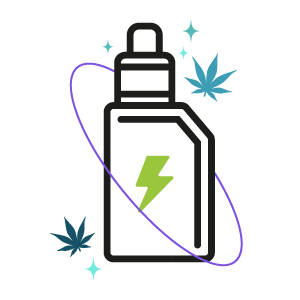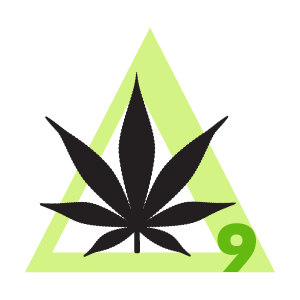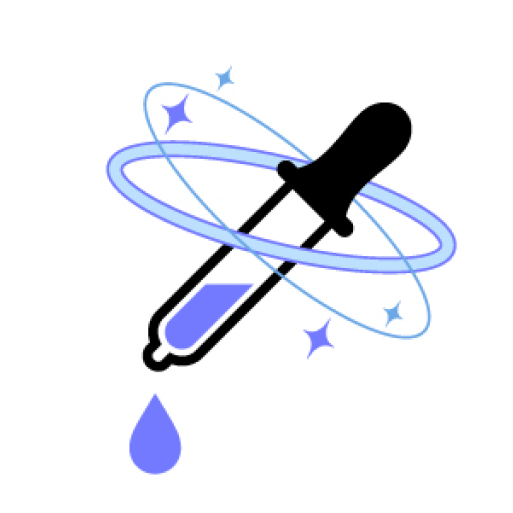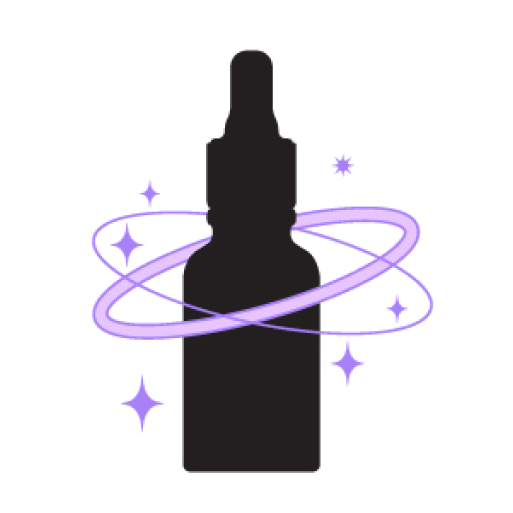Comparing HHC vs THC: What You Need to Know in 2024

Your friends start talking about the latest trends in cannabis products. They mention HHC and THC, and you’re curious.
- What exactly is HHC vs THC?
- How strong is HHC? THC?
- And what about HHC-P vs THC-P? or THC-P vs THC-O?
HHC and THC are both cannabinoids, but they have different structures.
This means they can affect your body differently. For example, HHC and THC can both get you high, but the experience and potency might not be the same.
People often wonder, Does HHC get you high?
The answer is yes, but it’s a bit different from the high you get from THC.
Many wonder if HHC will show up on a drug test or how long does HHC stays in your system. These are some considerations for anyone curious about trying HHC or switching from THC.
In this simple guide, we’ll help you understand the key differences and similarities between HHC and THC so you can make informed choices.
What is HHC vs THC?
When comparing the HHC vs THC molecules, it’s important to understand their structural differences and how they interact with the body’s endocannabinoid system.
THC (tetrahydrocannabinol) is a well-known psychoactive compound found in cannabis. It causes the intoxicating effect that folks experience when they consume marijuana. THC interacts with the body’s endocannabinoid system, especially the CB1 receptors in the brain—influencing various physiological and cognitive processes.
THC’s structure includes a complex arrangement of carbon, hydrogen, and oxygen atoms that allow it to interact in the human body.
Whereas HHC (hexahydrocannabinol) is a lesser known cannabinoid and a hydrogenated form of THC. It is a cannabinoid that is found in the cannabis in trace amounts but is usually synthesized for commercial use.
HHC was first created in 1944 by an American chemist named Roger Adams. He used a process called hydrogenation, where he added hydrogen molecules to THC. This process altered the molecular structure of THC by replacing its double bond, resulting in HHC. This was the first time HHC was synthesized in a laboratory.
In 2020, two Spanish researchers, J. Basas-Jaumandreu and F. Xavier C. de las Heras, discovered that HHC also occurs naturally in the cannabis plant. They analyzed lipid extracts from cannabis sativa seeds and identified 43 different cannabinoids, including HHC. However, they found that HHC is present in such small quantities that extracting it directly from the plant is not economically feasible.
Molecular Distinction
THC has a complex structure made up of different parts, including a phenol group, a cyclohexene ring, and a pentyl side chain. One important feature of THC is a double bond in its cyclohexene ring. This bond is located between the 9th and 10th carbon atoms in Delta 9 THC.
This double bond is crucial for how THC affects our brains. It fits perfectly into special receptors called CB1 receptors, which leads to effects like feeling high, changes in how we see and hear things, and feeling relaxed.
HHC, on the other hand, is a modified form of THC. It’s been modified by adding hydrogen atoms, which makes it saturated. This means the double bond in THC’s cyclohexene ring is gone, and instead, there are only single bonds, changing the shape of the molecule, making it a bit different.
Because of these changes, HHC interacts with our cannabinoid receptors in a different way compared to THC. While it still attaches to CB1 receptors, it doesn’t do it the same way as THC does. This usually means HHC gives milder effects compared to THC
Does THC And HHC Occur Naturally?
In its natural state, THC exists as THCA (tetrahydrocannabinolic acid), which is a non-psychoactive precursor.
When cannabis is heated (through smoking, vaping, or cooking), THCA converts into THC through decarboxylation—a process involving heat that removes a carboxyl group, making THC psychoactive.
HHC also naturally occurs in cannabis but in tiny quantities, much less than THC. Due to its scarcity as mentioned above, extracting HHC directly from the plant for commercial use is impractical.
Psychoactive Potency and Its Effects
| Aspects | HHC | THC |
|---|---|---|
| Potency (HHC vs THC high) | Generally considered less potent than THC. | High potency, with noticeable psychoactive effects. |
| Effects | Milder psychoactive effects, often described as relaxing and clear-headed. | Strong psychoactive effects, including euphoria, altered perception, and relaxation; may cause anxiety or paranoia in some users. |
| Dosage | Higher doses may be required to achieve effects similar to THC due to lower potency. Exact dosage can vary widely based on product form and individual tolerance. | Lower doses needed due to higher potency. Dosage varies depending on the form of THC (flower, concentrate, edible) and user tolerance. |
| Duration of Effects | The duration of its effects can last anywhere from 2-4 hours, depending on the dose consumed. | Effects last 1-3 hours when smoked or vaped; edibles can extend the duration to 4-8 hours or more. |
| Legal Status | Often in a legal gray area; may be considered legal if derived from hemp (containing less than 0.3% THC) under the 2018 Farm Bill; state laws vary. | In the US, it is legal for medical use in 38 states and for recreational use in 24 states. However, at the federal level, it remains classified as a Schedule I drug, prohibiting its use for any purpose. |
| Detection in Drug Tests | Recent studies on HHC have concluded that HHC metabolites trigger Delta 9 drug tests | Commonly detected in drug tests, as THC metabolites (especially THC-COOH) are targeted in standard testing protocols. |
Commonly detected in drug tests, as THC metabolites (especially THC-COOH) are targeted in standard testing protocols.
The hydrogenation process improves the stability of HHC. This is an important distinction from THC, which can degrade over time due to oxidation when exposed to oxygen.
As a result, THC products may lose potency and effectiveness over their shelf life. In contrast, HHC Products is more resistant to oxidation, ensures a longer shelf life and maintains its potency for a more extended period.
When deciding between THC and HHC, several factors come into play, including personal preferences, individual health, and the legal status of these compounds in your area.
It is essential to thoroughly educate yourself about the properties, benefits, and potential side effects of both THC and HHC to make an informed choice.
Additionally, starting with low doses allows you to observe how your body reacts, ensuring you can adjust your intake accordingly and find the right balance for your desired effects.
Where Can I Find HHC Products and THC Products?
Finding high-quality HHC and THC products can be a daunting task with so many given options available on the market. However, if you are looking for reliable and premium cannabis products, Elyxr stands out as a top choice.
To begin with, our product lineup includes vapes, tinctures, edibles, concentrates, flowers, and pre-rolls, so that you can find exactly what you need. All products undergo rigorous testing in certified laboratories to ensure they meet the highest purity and potency standards. This means that when you purchase from Elyxr, you can trust that you’re getting a safe and effective product.
Additionally, each product contains detailed information, including cannabinoid profiles, terpenes, and testing results. Not to mention, shopping with Elyxr is straightforward and convenient.
Our user-friendly website allows you to browse different categories, read detailed product descriptions, and check customer reviews. We also offer secure payment options and discreet shipping to ensure your privacy.
Visit Elyxr today and discover its premium quality and exceptional service.
FAQs – Frequently Asked Questions
Q. What is HHC vs THC-O?
HHC is a hydrogenated form of THC with milder psychoactive effects. While THC-O (THC-O-Acetate) is a synthetic cannabinoid that is reportedly much stronger than THC. THC-O is known for its intense psychoactive effects and is often referred to as a prodrug because it becomes active after being metabolized in the body.
Q. What are the medical uses of THC?
THC is used medically to manage chronic pain, reduce nausea and vomiting (especially in chemotherapy patients), stimulate appetite in conditions like HIV/AIDS, and treat conditions like multiple sclerosis and glaucoma.
Q. Can THC be used to treat PTSD?
Some studies suggest that THC may help alleviate symptoms of PTSD by reducing anxiety and improving sleep. However, more research is needed, and it’s important to use THC under medical supervision for this purpose.
Q. Can you overdose on THC?
While it’s unlikely to be fatal, consuming too much THC can lead to severe discomfort, including anxiety, paranoia, rapid heart rate, and hallucinations. It’s important to use THC responsibly and start with low doses.
Q. What is the entourage effect?
The entourage effect refers to the synergistic interaction between cannabinoids, terpenes, and other compounds in the cannabis plant. This interaction is believed to enhance the therapeutic effects of each compound.
Q. How does THC interact with alcohol?
Combining THC with alcohol can intensify the effects of both substances, leading to increased impairment and a higher risk of negative side effects such as dizziness, nausea, and vomiting.
Q. What should you do if you experience adverse effects from HHC or THC?
If you experience adverse effects, it is best to stay calm, hydrate, and rest. In case of severe reactions, seek medical attention. Starting with a low dose can help minimize the risk of adverse effects.
Q. What is HHC vs THC-P?
THC-P (Tetrahydrocannabiphorol) is a naturally occurring cannabinoid that is significantly more potent than THC. THC-P has a longer alkyl side chain, which allows it to bind more effectively to CB1 receptors, leading to stronger psychoactive effects.











